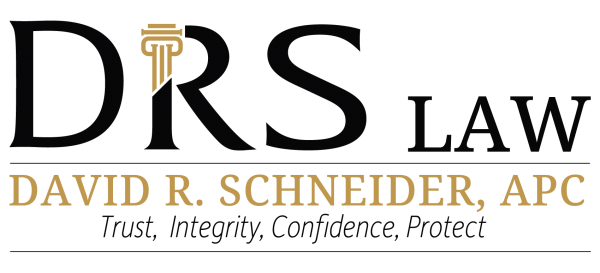This month’s blog is a culmination of some common estate planning FAQs I have experienced. In no particular order;
Is it difficult to operate a Trust?
“Operating your trust is no different from going through daily life, with the added benefit that trusts avoid probate. After the trust is signed and put into force, there is initial work to be done. The assets you have and those that you subsequently acquire need to be re-titled/titled into the name of the trust. This includes assets such as bank accounts, brokerage accounts, and life insurance, which must be adjusted to follow the terms of the trust. This step is crucial as it helps in bypassing the lengthy and often costly probate process upon your passing. The process usually involves going to each institution and completing the necessary transactions. Fortunately, this is a one-time event. Once you have re-titled your assets into the trust, there is no need for further adjustments, and you can continue managing your assets as before. For any newly acquired asset, like a new bank account, you simply open it in the name of the trust directly, eliminating the need to later transfer it into the trust, thus streamlining your estate management and ensuring a smooth transition of assets outside of probate.”
If I am a successor trustee, what do I have to do?
Essentially everything you would do if the assets were your own. Take care of the assets or change them as may be required keeping in mind that everything you do, you do in the best interests of the beneficiaries of the trust, whether that is the now incapacitated Settlor of the trust or the successor beneficiaries. KEEP RECORDS – you are responsible for all actions and even if you are one of the beneficiaries of the trust, you should be able to document everything that you do with a proper paper trail.
Do I lose control over my property?
Absolutely not. The trust consists of three persons; the Settlor who creates the trust; the Trustee who manages the trust assets; and the Beneficiary who receives the trust assets. When you develop your revocable living trust, you occupy all three positions as the Settlor, Trustee and Beneficiary. You create the trust, you manage the trust assets in the best interests of the beneficiary, which is you.
What happens if I become incapacitated?
The trust will name successor trustees. These trustees step up to act when you can no longer act. The rules all remain the same; the trustee must act in the best interests of the beneficiary(ies) of the trust, which in this discussion is you. The best part here is that you have picked your successor trustee and not some other family member who you may not have chosen yourself and not someone appointed by a court.
How long does it take to set up a Revocable Living Trust Estate Plan?
Once you make the commitment to create your plan, you have likely already made the toughest decision. Once engaged with my office we work on a turnaround of about 4-5 weeks, schedules permitting. We meet initially to explain the inner workings of the effective estate plan, then go through a short but thorough questionnaire to learn about the assets what your wishes are for these assets and who you will look to, to step up in the various responsibilities we will need. Following this we take a break to make sure you have had the proper time to digest and reflect on the decisions made before we create a final version for review and then signatures.
When should I give my children/grandchildren their inheritance?
In the US a child becomes an adult at age 18. They can vote for president; they can serve in a foreign war. This, however, does not necessarily equate to maturity. This is ultimately a decision you make, and of course, you likely have more than just passing knowledge about the persons you are leaving an inheritance to. In the majority of instances, we will look at the amounts to be left to the immature adult beneficiary and then try to speculate on when they will likely become mature enough to handle the gift you are leaving to them. It is a bit of a balancing act. Generally, by the time the beneficiary attains the age of 30 to 35, they are likely to be as mature as they are going to be and it doesn’t make sense to hold onto assets longer than this. We also want to be careful we do not keep the trust in place for too long, managing too little.
Do I have to redo my Trust if I move to another state?
“No. While there are subtle differences between the states in that each has its own probate code (there is not a federal probate code), these differences are more relevant in probate court proceedings rather than with trusts. This is where consulting with a knowledgeable probate attorney becomes essential, especially when moving between states. You can move, acquire new assets in your new state, and have them titled in the name of the trust created in CA. Our role as probate attorneys includes drafting the trust agreement to stipulate that the trust estate shall be administered according to this agreement and CA law. This ensures that, in the unlikely event of a required court action in a new jurisdiction, the local court would apply CA law to resolve any issues.”
Can I put real property or timeshares from another state into my California Trust?
Yes, this is something that is done all of the time. There is no limitation on the amount or the location of real estate that can be titled into the name of the trust. Once you have established the trust, you can acquire the out-of-state property directly into the name of your CA trust.
With respect to timeshares, the majority of timeshare companies are now trying to convert out of deed ownership and to points systems. Most timeshare management companies will make the change for you, although some may charge for this service.
Do I need a lot of paperwork and account numbers?
No. While I will ask you about your assets to ensure that I have a proper understanding of you and your family’s needs, we do not generally include account numbers or the name of the financial institution in the body of the trust agreement. If we are to include this information directly in the document, each time the account changes, e.g., you close the savings account or move the CD to another account or institution, we would then have to amend the trust for the new information. We take the approach of writing the plan looking at the sum total and then describing how the whole will pass or be divided, usually using percentages that add up to 100%. On occasion, someone will ask that a specific account pass to a specific person and then we will need the specific account information. Otherwise, this is not generally needed.
For more FAQs which address the Trust and the other documents of the comprehensive estate plan, please look at the FAQ page at www.DRS-Law.com.
Estate planning consultations are available virtually and in the office, and David is happy to help clients throughout California. He has helped thousands of families set and achieve their estate planning goals. David sees clients by appointment only to ensure that each has his undivided attention. Contact us to schedule a free consultation today at 805-374-8777 or dschneider@drs-law.com. We look forward to hearing from you and helping you set up your comprehensive estate plan, including a trust, a pour-over will, durable power of attorney, advanced healthcare directive, and nomination of a guardian and special needs trust, where needed.

